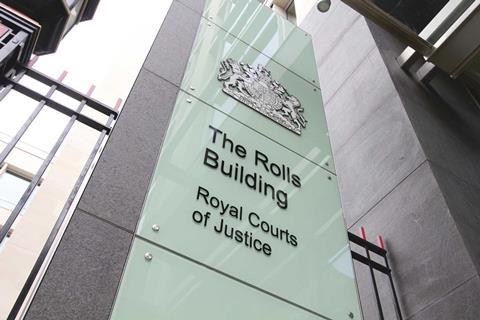The High Court has refused relief from sanctions to a claimant who wanted permission to amend an application made nine years ago.
In Frances v F Berndes Ltd & Ors Deputy Master Linwood said there was no good explanation for the serious and significant breach of a court order to file and serve an application to amend back in January 2012. With total costs coming to £300,000 and already exceeding the claim’s value, he effectively ended the claim which was based on events from as far back as 2004.
The court heard that a ‘deafening silence’ had followed the original deadline until a further application was issued in 2020. Linwood said there was no evidence that relevant documents were originally served, and the claimant’s explanation that defendant solicitors failed to receive copies by email and fax ‘verges on the technologically unlikely’.
Without needing to hear oral evidence, the judge found that the application for permission to amend was not issued, filed and served, with the claimant’s evidence especially unsatisfactory as it was ‘self-serving, unsupported and inherently improbable’.

The deputy master then moved on to the claimant’s application for a retrospective extension, applying the three-stage Denton principles to decide if he could allow the claim to continue.
The claimant said he had not progressed the matter because of a lack of funds, an absence of representatives willing to take on the case and his fear about getting relief.
Linwood said the delay in issuing the application was ‘substantial’ and that a lack of funds was not a good reason to progress the matter. The claimant also produced no evidence to show he attempted to obtain legal advice.
The deputy master added: ‘I would add that not proceeding until he had solicitors who could address the claim is not a good explanation. It could mean, if he was correct in that, that time is open-ended, which must be wrong.’
Linwood said the delay was prejudicial to the evidence and the fair trial: the claimant himself could not give evidence or be cross-examined and key documents had been destroyed in a fire. He added: ‘There could, therefore, be substantial prejudice to the defendant if the claimant went to trial as the quality of the evidence would be poor, especially with fading memories and lack of documentation.’
The defendant, a family business with limited resources, had incurred £140,000 costs and had received none of the £45,000 costs orders previously made. The claimant’s costs had also reached £160,000 for an unjust enrichment claim which was valued at £250,000. The costs were therefore deemed disproportionate.



























9 Readers' comments